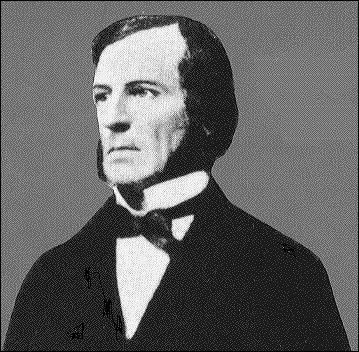If you read certain sourcing and recruiting blogs and discussion groups, you might get the impression that Boolean search pretty much equals Internet search – such as searching for people and profiles using Google, Yahoo, or other search engines. Some sourcing and recruiting professionals may be surprised to learn that Boolean logic significantly predates the Internet and even computers – by a couple hundred years!
The word “Boolean” comes from the man who invented Boolean Logic in the 19th century – George Boole. Boolean Logic is the basis of modern computer logic, and George Boole is regarded in hindsight as one of the founders of the field of computer science.
Now that you know Boolean logic was created in the 1800’s – it’s pretty obvious that Boolean logic is not just for searching for people and information on the Internet. Practically any information system from which you need to search and retrieve information from “speaks” Boolean to some extent, whether you realize it or not.
Applicant Tracking Systems
I was first exposed to Boolean search back in 1997 B.G. (Before Google) when my sole source of candidates was a Lotus Notes resume database by the name of CPAS, made by VCG. Although the CPAS product (which no longer exists) was far from a fully featured Applicant Tracking System, thankfully it did support full Boolean logic, with very few limitations. If it didn’t support full Boolean logic, this blog would probably would not exist – and if it did, I wouldn’t be writing it. Thank you CPAS!
The CPAS search interface allowed me to hand-code highly precise and effective Boolean search strings using all three standard Boolean operators: AND, OR, and NOT. While there are some applicant tracking systems on the market that do support full Boolean logic, it is an unfortunate fact that too many ATS’s available today do not support creating searches using full Boolean logic, which significantly handicaps sourcers and recruiters from leveraging their internal corporate candidate databases.
Job Boards
In contrast – all of the major job board resume databases (Monster, Careerbuilder, Hotjobs, Dice, etc.) support full Boolean logic. As I have written about many times before, Monster even supports “extended” Boolean search functionality with the incredibly powerful NEAR operator.
Social Networks
While most social networks are painfully difficult to search with their extremely limited search interfaces, LinkedIn does support creating search strings employing full Boolean logic. In fact, it appears that you can create Boolean search strings of unprecedented length and complexity on LinkedIn. If you haven’t already, please read this post I wrote that compares searching LinkedIn using LinkedIn’s search interface with searching Linkedin using Google and the x-ray technique. I got tired of entering words into LinkedIn’s search bar after cramming 316,638 characters into it. That’s the equivalent of a Boolean search string that contains over 60,000 words and is approximately 120 pages long!
Internet Search
What’s especially ironic about the wide spread perception that Boolean = Internet search is that most Internet search engines don’t even support full Boolean logic. For example, although Google supports Boolean search strings containing AND, OR, and NOT (with the minus sign) functionality, you cannot use the NOT/- operator on an OR statement.
Let’s look at the results when we try and run this search string on Google: Continue reading

